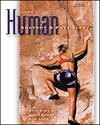

 Hole's Human Anatomy & Physiology, 9/e Joints of the Skeletal System True/False Quiz |
 2002 McGraw-Hill Higher Education
2002 McGraw-Hill Higher EducationAny use is subject to the Terms of Use and Privacy Notice.
McGraw-Hill Higher Education is one of the many fine businesses of The McGraw-Hill Companies.